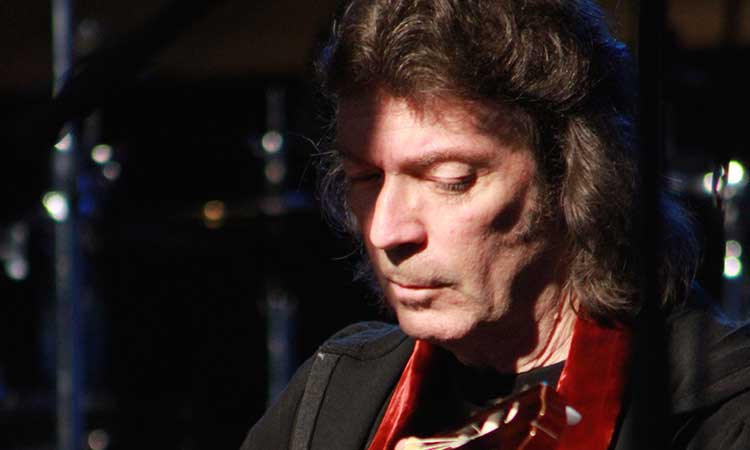Nick Love talks to legendary Genesis musician Steve Hackett ahead of his concert at York Barbican
The recent new Genesis documentary on the BBC, which reunited all the old band members for the first time in a very long while, was an unalloyed treat for fans of the band and their member’s associated solo projects.
Almost more interesting than the actual history of the band and what became of the individual band members was their interaction now that they were sitting down together reflecting on days gone by.
At first glance it seemed spiky and awkward at times. They sometimes seemed ill at ease with each other or delivered finely crafted small slights at particular members.
Their tone was jocular though, but said deliberately with a point to make.
The social media reaction was fascinating as well, as Steve Hackett seemed to have got the shortest straw of all members with his solo work being virtually airbrushed out – even though he confirmed afterwards that he had given extensive interviews to the BBC at the time.
For a key member of Genesis who was a co-author of six of their pivotal albums I believe this demonstrated a certain lack of respect.
This was also not lost on viewers of the documentary who were vocal on Twitter in their disapproval for the lack of balance compared to other members.
I asked Steve Hackett about this about meeting his former collaborators when we spoke recently to discuss his upcoming visit to York Barbican as part of his Genesis Extended world tour.
“It’s still a very competitive collection of individuals, whether we’re working together or separately,” he said. which certainly concurred with my impression of the group dynamic.
I asked if they had ventured opinions on his latest project to highlight the classic Genesis tracks from his era, loved by so many dedicated fans.
“Stiff upper lip comes into play – there’s very little comment on each other’s work. Much as you’d like them to say for instance ‘well done, isn’t the sound production so much better than in our day’, they don’t.
“You know they’re thinking it but they’re not going to say it.” He gave a hearty laugh and added “Well not in this lifetime anyway!”
He’s right about the sound production by the way. I saw Hackett and his band last year on their first Genesis Revisited tour and the sonic fidelity was of a quality that was quite staggering.
It is impossible to ignore how advances in digital technology have contributed to this, but the commitment by Hackett to provide the best possible experience to his audience was an equally vital component.
High standards
It is very apparent both in the end product he delivers and in the interview that Hackett sets very high standards for himself and those around him.
He spent three months exhaustively relearning all the songs in the set – with all their complexities not just in structure of melody and harmony, but in instrumentation.
“Authenticity is paramount in my eyes,” he says of a philosophy that underpins the whole approach to the live project as he added “the devil was in the detail” – which is illustrated by just how faithful the songs are to the originals in their reproduction.
The Genesis songs of the six albums that Hackett was part of (from Nursery Cryme to Wind and Wuthering) are complex both in linear structure and orchestration.
Song writing within Genesis was a group affair and sounds combative as well as interactive. “You need writing partners who can say that you need to stick a variation in speed there or a different rhythm there.
“Nothing was sacred until we’d kicked this thing around – passing the ball backward and forward.”
The chaotic nature of song writing per se comes over very strongly: “things that we thought were going in one direction stylistically, suddenly took off in another and they were righteously decimated.”
“No one really knows the art of writing a song,” Steve says. “The process is an arcane one, but a mystical experience when you’re writing something and suddenly realise it’s got real value.”

Worldwide fame
Genesis found a global audience for their idiosyncratic style with an approach that would be viewed with panic today by music executives.
They wrote their music then asked audiences to like it, rather than looking at what an audience wanted. Something that Hackett expands on when he looks at the celebrity game show approach to finding what is ultimately ephemeral talent, which is currently in vogue.
“It depends on what terms you want success. Do you want to build an audience from the ground up, or do you want to cast yourself on the waters of chance and be applauded or deplored by a panel of experts?
“I’m not sure that the choices that are made by those judges are essentially musical ones.”
His assertions are backed up by the evidence of the transitory careers of many talent show winners with their subsequent formulaic songs that lack originality or ingenuity.
“There’s not enough variation in the melody line. There’s a phrase or a drum pattern that’s just repeated and repeated and repeated,” says Hackett. This is the musical equivalent “of a bit of a TV dinner”
As we were wrapping up the interview I broached the hackneyed subject of a Genesis reunion of the classic line-up including Hackett and Gabriel.
The gently spoken and extremely genial Hackett responded: “I hope there will be something in the future – whatever that may be” – but in a tone that conveyed that although it may be possible it’s not imminent or likely. Quel dommage!
In the meantime, this coming Sunday, Genesis fans are in for a nostalgic treat as Hackett brings his Genesis Extended show to the Barbican.
Steve Hackett is at the York Barbican on Sunday, October 26, supported by York band Mostly Autumn
Details on the York Barbican website
